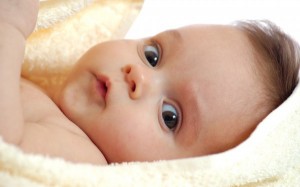This article originally appeared on finkorswim.com.
An area of intense debate has historically been whether people are born good or are born sinners or are born neither? Similarly, is our moral compass natural or is it nurtured? Questions like these have been tackled by philosophers and religions for a long time.
Some Christian denominations talk of Original Sin. Generally speaking, this means that Adam’s sin in the Garden of Eden caused all humans to be born with a negative impulse. This sounds like our version of the Yetzer Hara (Evil Inclination). We say a child is born with a Yetzer Hara that pulls the child in toward sin and upon reaching the age of adulthood one receives the Yetzer Tov (Good Inclination) that pulls us to be virtuous.
I’ve heard and often repeated an idea from R’ Moti Berger that this Yetzer Hara refers to selfishness. We are born thinking about our immediate needs and desires with no appreciation for consequences to the detriment of others and even to our own personal long term detriment. This is another way of expressing the same principle.
Religions seem to prefer the idea that we are born with a negative tendency and our religious education and training prepare us to battle our Yetzer Hara. As we grow and learn throughout life we are expected to shrink our negative influences and increase the strength of our positive influence.
R’ Wolpe Tweeted about a video from a few months back on 60 minutes.
“Modern studies prove the Rabbis got human nature exactly right: we have both a good and evil inclination:”
I am pretty sure that Chazal talked about being born with the Yetzer Hara and being granted a Yetzer Tov later in life. So I think R’ Wolpe may be incorrect on that point. But I watched the video and I think he mischaracterizes the study as well. In the end, I think the study does support Chazal’s teaching. But in the way that they actually said it.
The study does not show that we are born with good and evil inclinations. It shows that babies have the ability to prefer certain choices. Those preferences can be based on a toy that seems nice, or a toy that did not help a toy that is not nice, or a toy that like the same things as them. I think it actually reinforces the idea that babies are self interested creatures and they want to be around things that will serve them well. This is what Chazal said. This is supported by the study.
The most impressive thing here is that they can understand what it means to be nice and that they can make choices based on that. But there is no indication that babies have a good inclination. All their good choices were self serving. This is not a bad thing. Not at all. But I think it’s a fairer way of describing the findings.
The video explains why people make hurtful or harmful decisions as a natural result of bias. We prefer things like us or things that share our likes and we are wired to be okay with punishing those who are outside our group. This video shows that it is natural to prefer things that are similar to us and this is clearly the root of racism. The trick to eliminating racism is to teach ourselves not to see the color of a person when our minds are determining whether another person is similar or different.
One thing I would like clarified is how the researchers know that these are naturally occurring thoughts and feelings. It seems to me that it’s just as possible that babies are fast learners and can learn these things from the people around them.
Most importantly, the study shows that we learn how to be selfless and giving as we get older. I actually cried at the end of this video (around 11:30). I won’t tell you why, but I hope you feel the same way I do.
The video taught me that society does a good job of teaching selflessness and that we value selflessness as we mature. To me, this is the greatest thing we can teach our children. Don’t rely on society to teach this to them, but it seems that even society is getting it right. It’s hard to argue with the data here.
The words of this author reflect his/her own opinions and do not necessarily represent the official position of the Orthodox Union.




